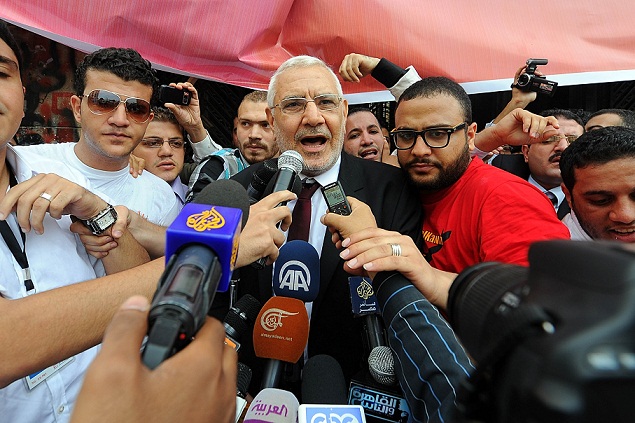Instead of helping all EU member states to meet their own Kyoto goals, the European Commission is shifting what should be a shared burden onto its newest members, which are already the most environmentally efficient in the European Union. In doing so, the Commission is rewarding inefficiency and reducing the effectiveness of its commitments to clean up the environment.
The Commission’s decision on Latvia’s National Allocation Plan (NAP) for 2008-2012 left only 55 percent of the CO2 emissions that Latvia requested. Similarly, Estonia and Lithuania received only 52-53 percent of their requested quotas. Serious cuts were also made to other new EU members’ quotas, prompting Poland, the Czech Republic, and Slovakia, as well as Latvia, to launch legal challenges. Yet almost all of the old EU members received more than 90 percent of the requested quotas.
What is going on here?
The Commission’s approach is misguided. According to its own information, the aim of the European Union Emissions Trading Scheme (EU-ETS) is to help countries meet their 2010 Kyoto targets by using market instruments to encourage companies to reduce their CO2 emissions. Logically, quotas should be linked to each member’s progress in complying with the Kyoto Protocol.
New EU member states are meeting their individual Kyoto commitments. Most are committed to reducing emissions by 8 percent by 2010. Latvia is already projected to lower its emissions by 46 percent by that date, even without implementing any additional CO2 reduction policies. Indeed, the new EU members are projected to reduce their greenhouse gas emissions by at least 21 percent by 2010.
Old EU members also have a collective Kyoto target of lowering their CO2 emissions by 8 percent by 2010, but they are projected to achieve a mere 4.6 percent reduction. Despite this, countries such as Belgium and the Netherlands, which are not expected to meet their Kyoto commitments, are being allowed to increase their emissions.
It is imperative that the European Commission distributes all burdens evenly and fairly among the EU’s 27 members. Most new members have met or are approaching their Kyoto targets, and they need rapid economic growth to catch up with the rest of the EU. But their ability to grow is being impaired because they lack the resources to confront the massive business lobbies of the EU’s most developed and richest countries. Making the Union’s newest members carry a disproportionate share of the burden of reducing the EU’s total amount of pollution is both unjust and foolish.
Latvia’s example is the most acute. After regaining its independence from the Soviet Union, only remnants of the industrial behemoths of the communist era remained. As trade links with the former Soviet world collapsed, most of these giant firms collapsed. Starting almost from an economic “point zero, Latvian entrepreneurs have built a new and modern economy, based on new and efficient technologies. As a result, Latvia has the lowest per capita greenhouse gas emissions in the EU.
But, despite being the EU’s third poorest country, the European Commission’s rulings mean that it must purchase emission quotas from richer and more polluting EU members that have done little to meet their Kyoto commitments. This unbalanced approach is jeopardizing the economic development of Latvia and other vulnerable new member states, while old members enjoy a free ride.
In small economies such as Latvia and many of the other new member states, even one large project is important for the whole country’s progress. The Commission’s decision to cut their CO2 emissions quotas may lead investors in desperately needed development projects to move outside of the EU, to countries with weaker environmental regulations, where their activities would contribute to higher global emissions. Additional emissions would occur when the goods are transported back to the EU.
As if this weren’t bad enough, the Commission is preparing an emission-trading scheme for EU airlines, with 2004 as the base year for setting quotas. This is a clear disadvantage for airlines from the new EU members, as the number of passengers they carry increased sharply only after 2004, when these countries joined the EU.
A recent decision to increase the share of energy from renewable sources to 20 percent by 2020 will also cause problems. Latvia, for example, already generates 37 percent of its energy from renewable sources, but will now likely be slapped with a target of around 50 percent, while some other members will have targets below 10 percent. Why are Latvia’s people, among the poorest in the Union, expected to pay for something that Europe’s richest people are finding difficult to do?
Latvia and other new EU members have little recourse but to challenge the European Commission in court. But suits and countersuits are not how we imagined the EU working when we struggled to join it. We thought that Europe believed in sharing its burdens equitably. Unfortunately, when it comes to the environment, Europe’s have-nots are being told to carry the load by themselves.
Valdis Dombrovskis, a former Minister of Finance in Latvia, is a Member of the European Parliament. This commentary is published in collaboration with Project Syndicate (www.project-syndicate.org)



